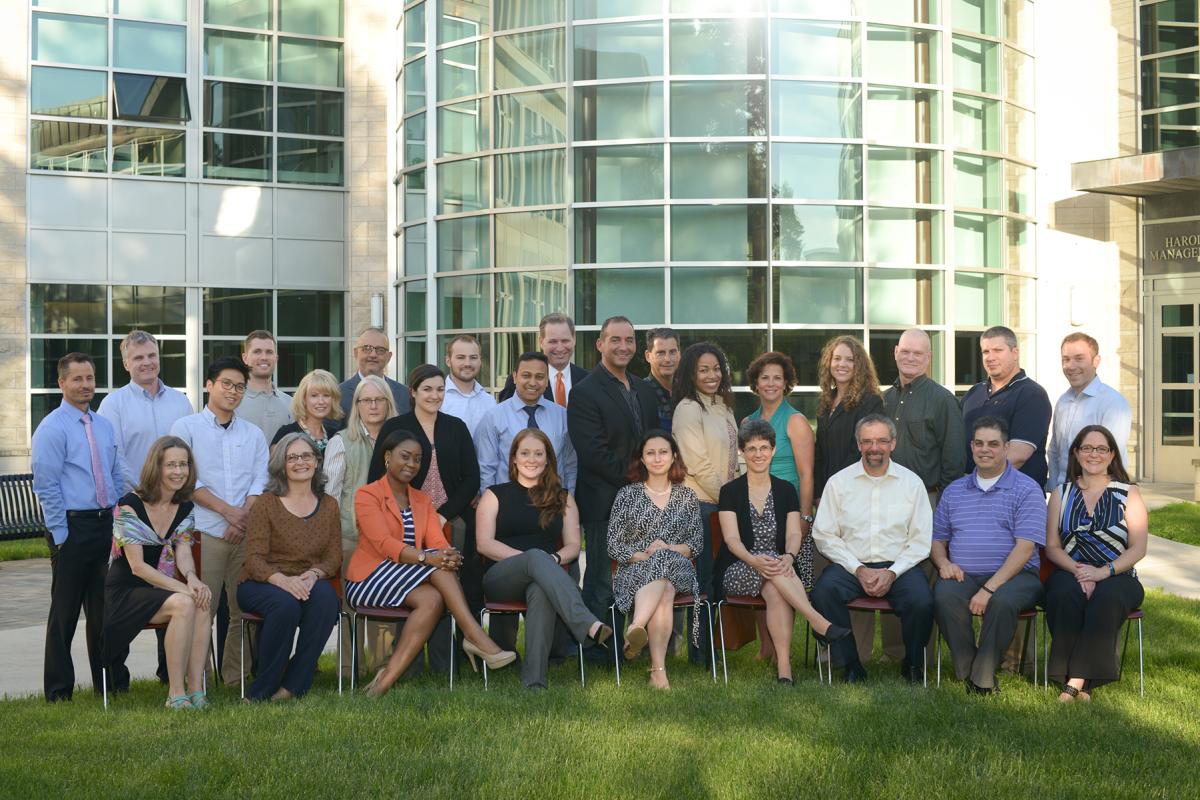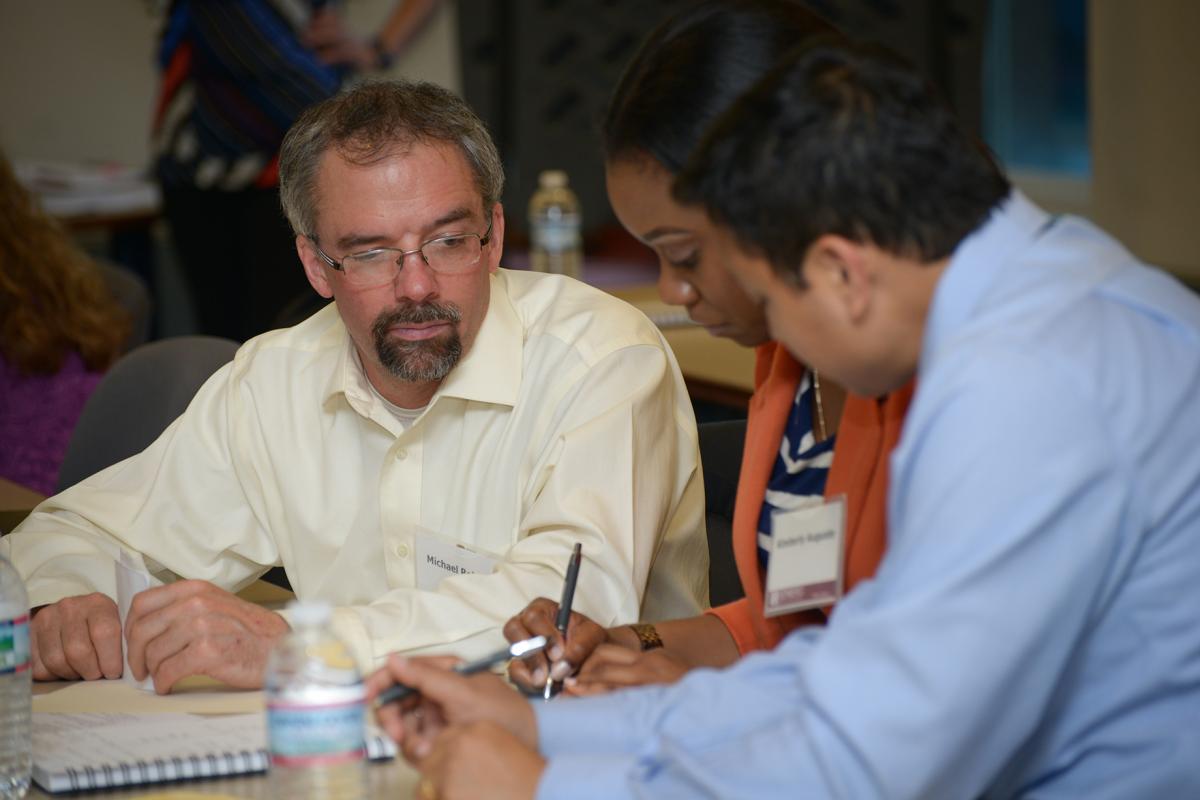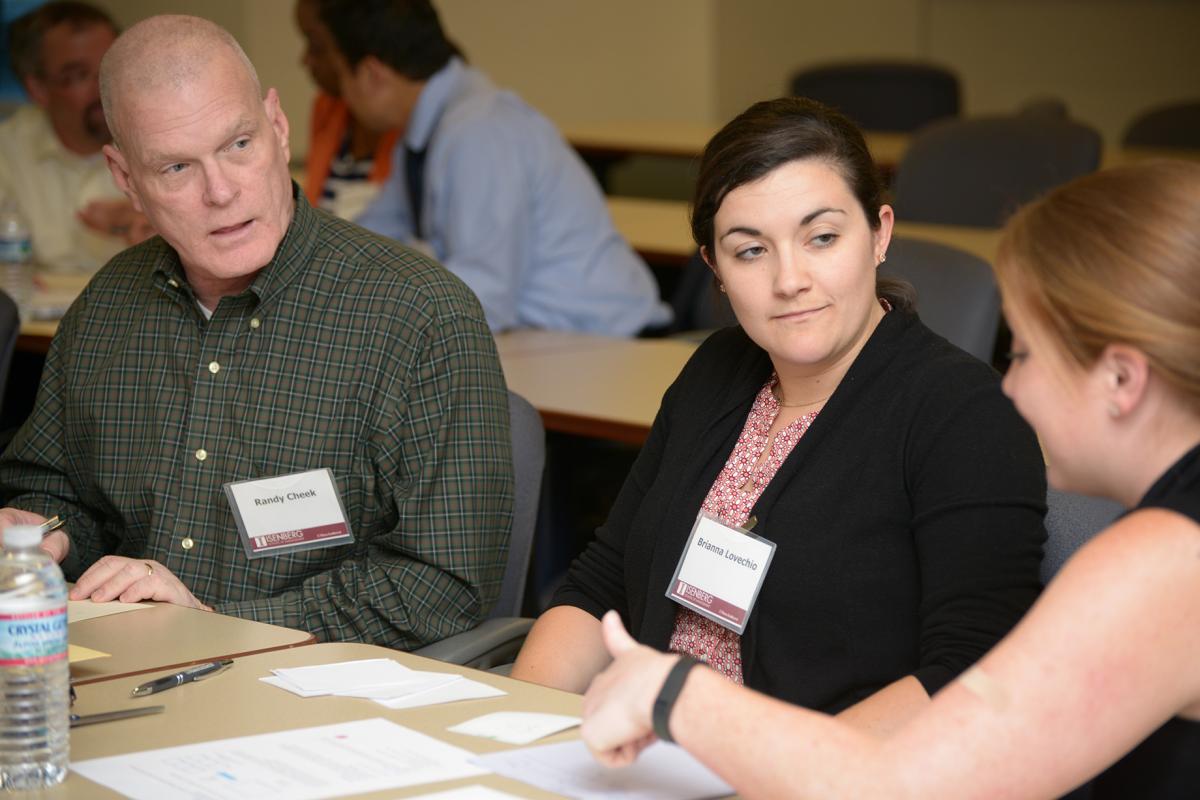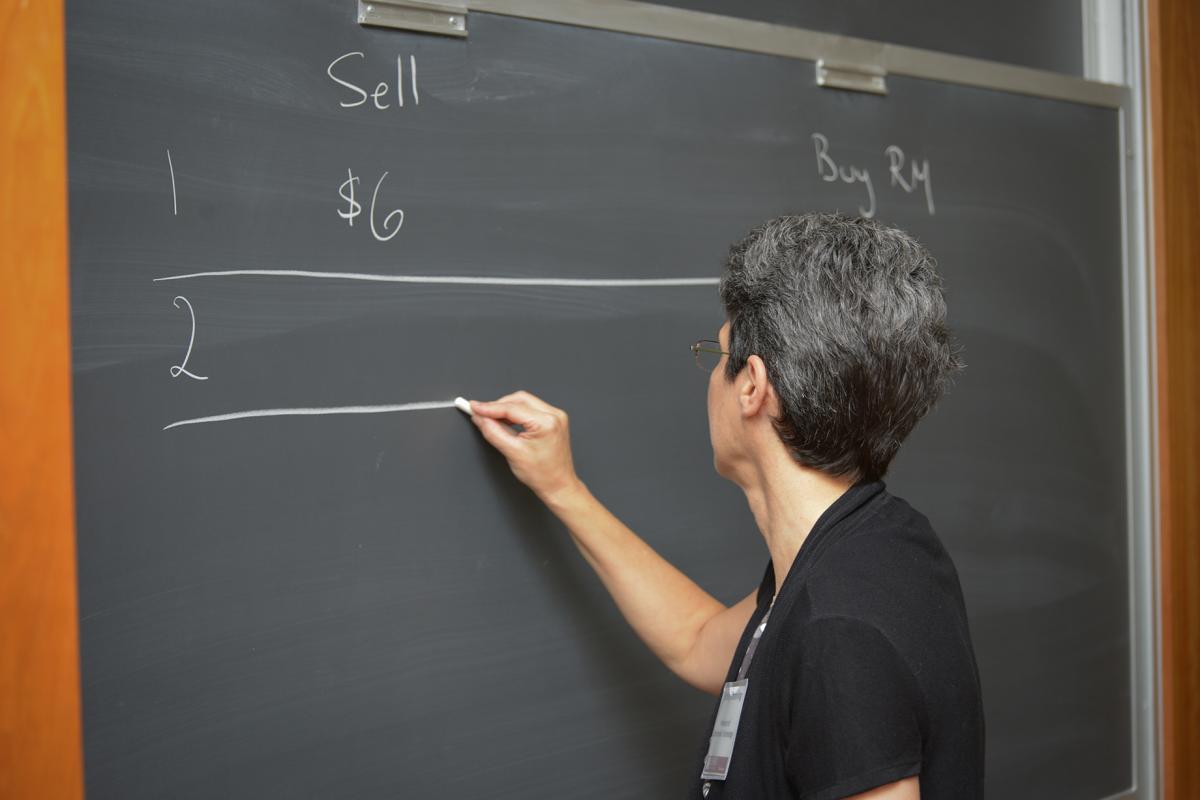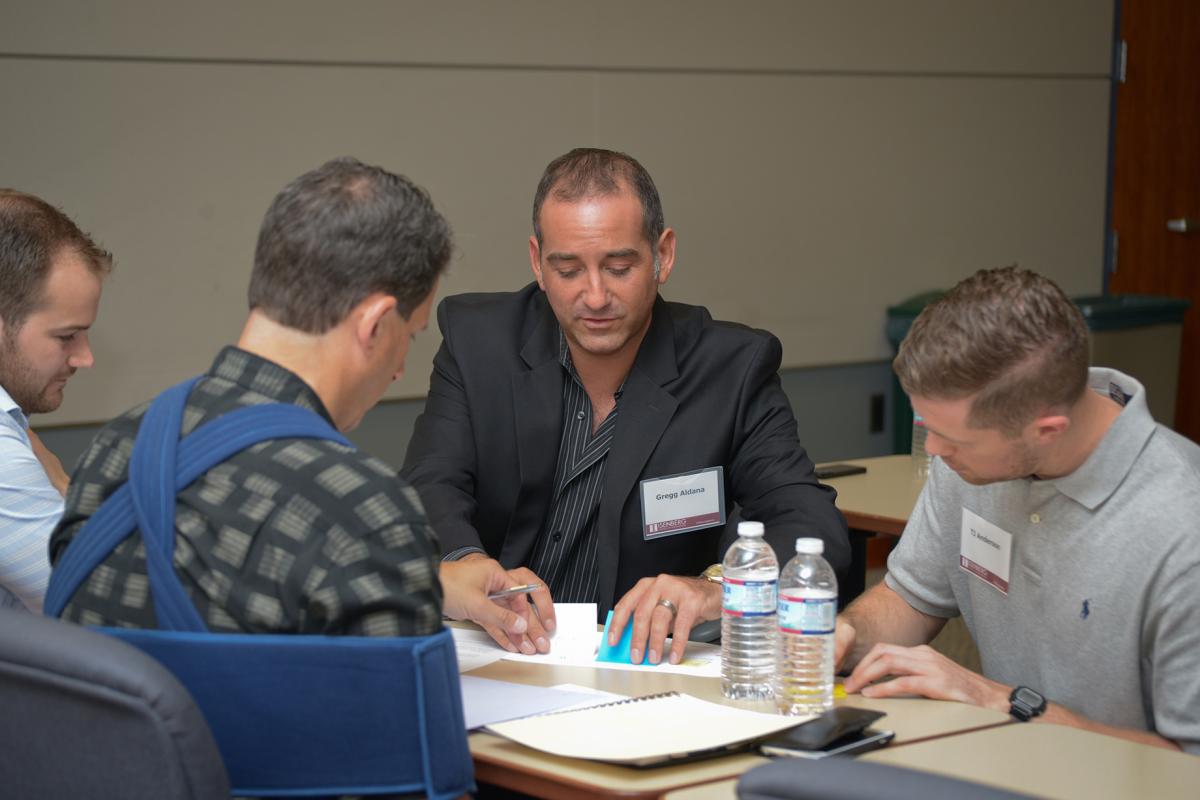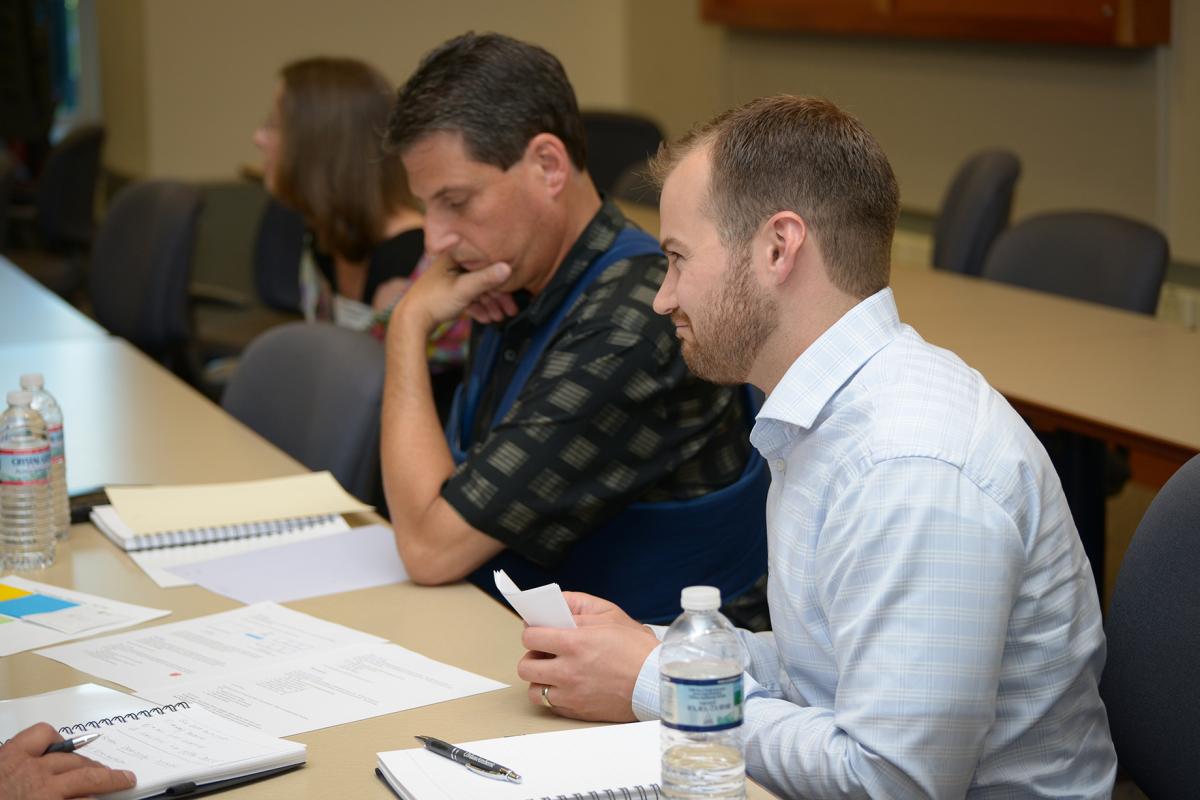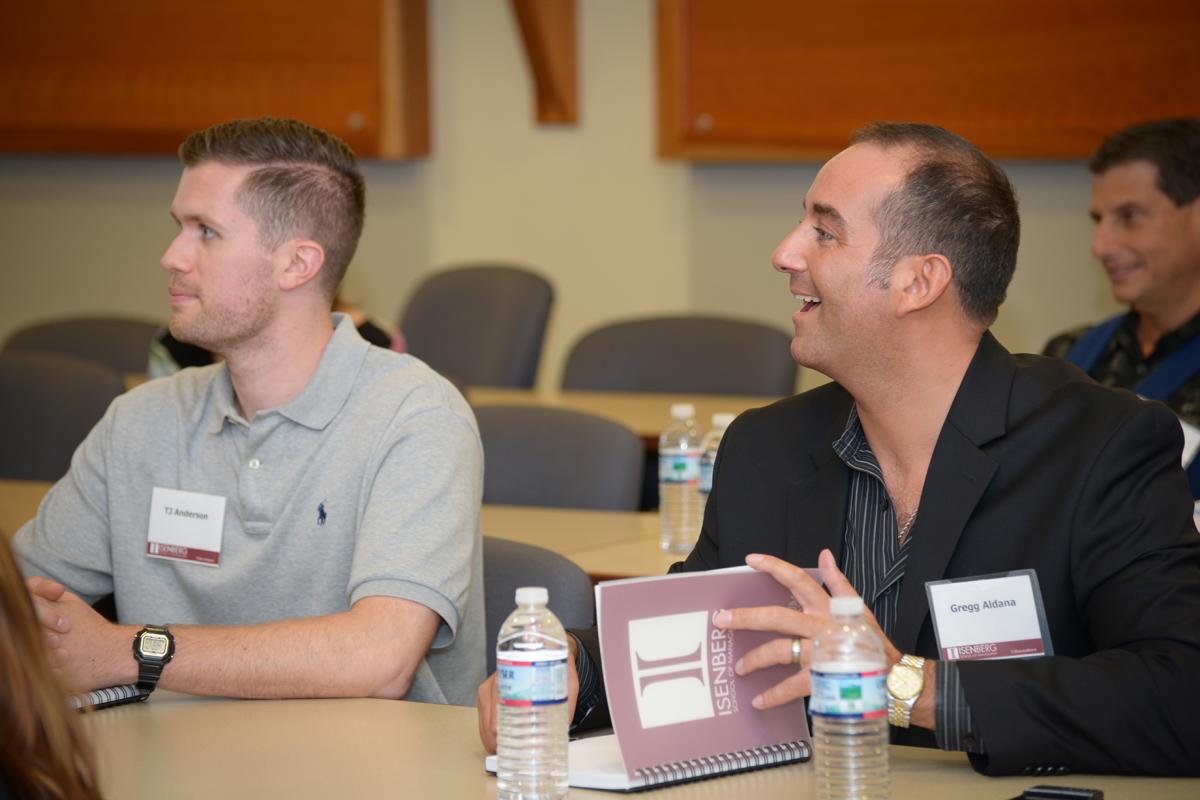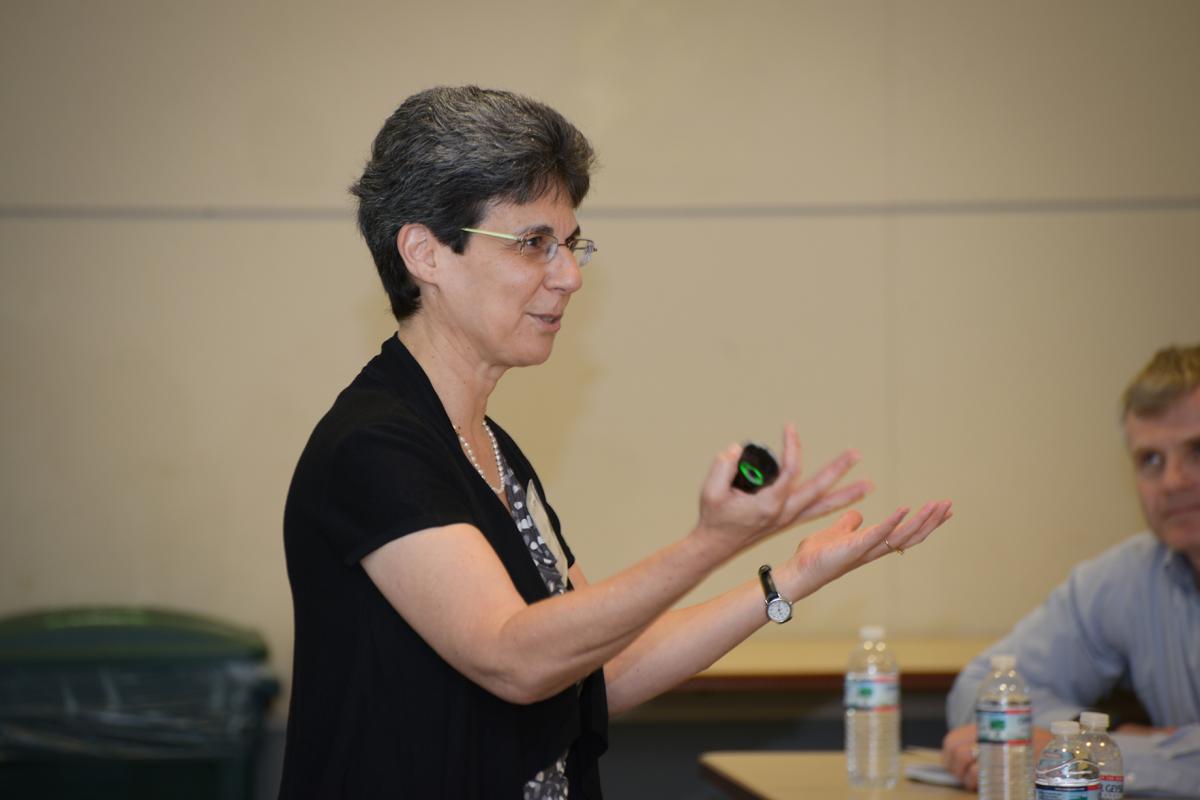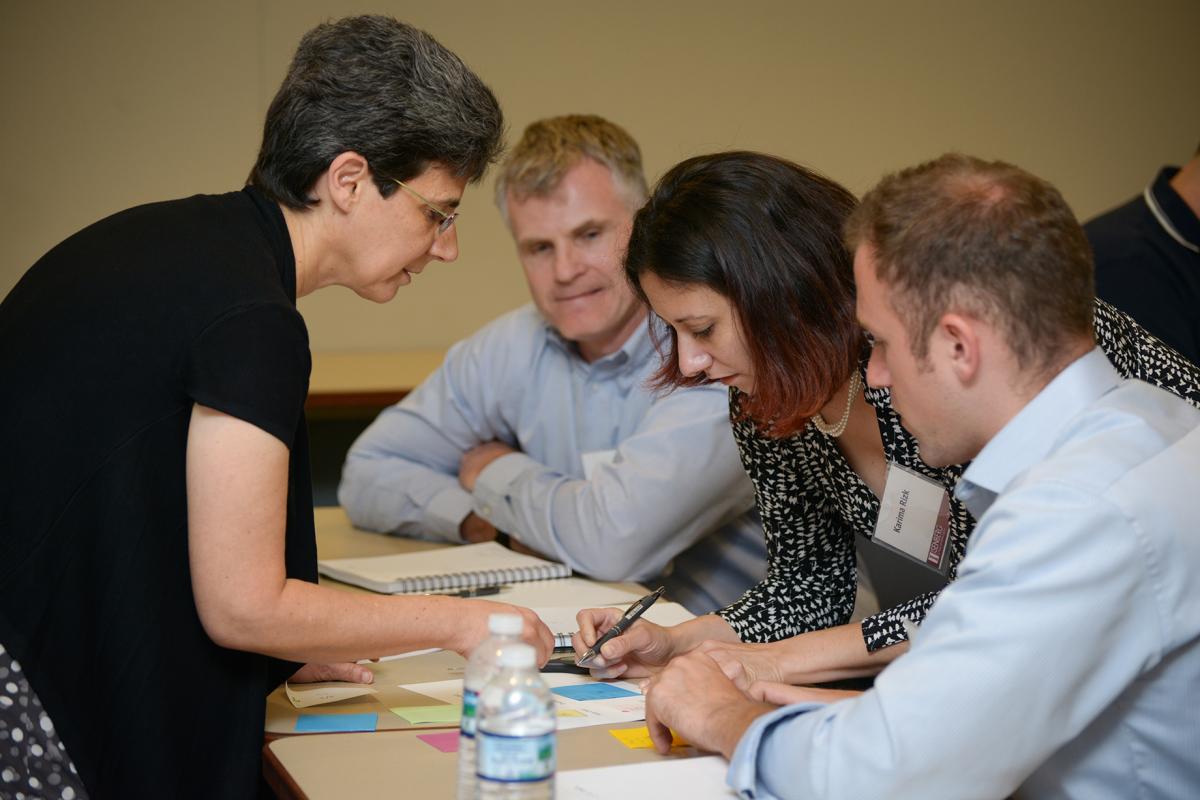Business Simulation Workshop Challenges Online MBAs
July 8, 2015
“Making the best decisions with incomplete data is crucial in today’s business world,” remarked Online MBA degree candidate Ethan Fallang. “Last weekend’s hands-on simulation workshop at Isenberg forced us as teammates to integrate a flood of information and make decisions on the fly. That is analogous to the real world, where you rarely have perfect information when making decisions.”
Fallang, who is CEO of Riverview Health Institute in Dayton, Ohio, was one of 17 participants—all but two of them current students in Isenberg’s Online MBA program—who gathered in Amherst for the two-day workshop, Strategic Business Decision Making through Gaming Simulation. The other participants at the June 26-27 workshop hailed from Idaho, Chicago, the DC area, Syracuse, Greater New York City, and Western and Eastern Massachusetts. For most, it was a first-time visit to Isenberg and their first in-person meeting with one another and their instructor, Shirley Shmerling, a senior lecturer in Operations and Information Management.
Developed at HEC Montreal (a business school), the simulation ran on SAP enterprise resource planning (ERP) software. Isenberg, noted Shmerling, offers SAP ERP training modules in sales and distribution, materials management, production planning, FICO consumer credit risk software, and inventory and warehouse management. “Besides the experiential learning, the students met informally with advisors and professors,” added Shmerling. “We built time into the weekend for the participants to network with them and one another.”
Real Time Learning and Decision Making
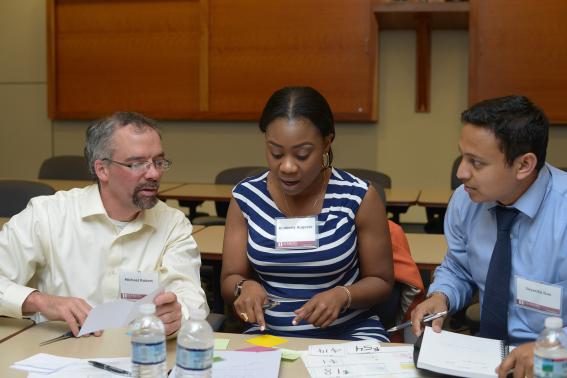
Once set in motion, the exercise suggested the real-time intensity of a trading room. Overheard conversations among teammates: “We didn’t move it [product] a while back; Now we can’t keep it on the shelves.” . . . “We're spending a lot of money on marketing and mix and it’s not helping.” . . . “Every time we take two steps forward, we take three steps back.” “The blueberry cartel is killing us.” Each team entered the competition with a specific strategy, which it adapted—often with improvised agility—during the simulation. In the end, they received evaluations based on their productivity, Return on Investment, and Return on Assets.
“The exercise tested our tolerance for risk and our trust in our teammates’ ability to make rapid, data-driven decisions,” observed Gabriel Cohn ’06 MBA, a physician and Senior Director of MD Clinical Services/Clinical Development with Shire Pharmaceuticals in Lexington. Each team member, he added, focused on a functional area like production, strategy, and sales. “I tried my best to respect my teammates’ functional boundaries, but also got a 360-degree view of the entire operation. For many of us, it was a unique experience.”
